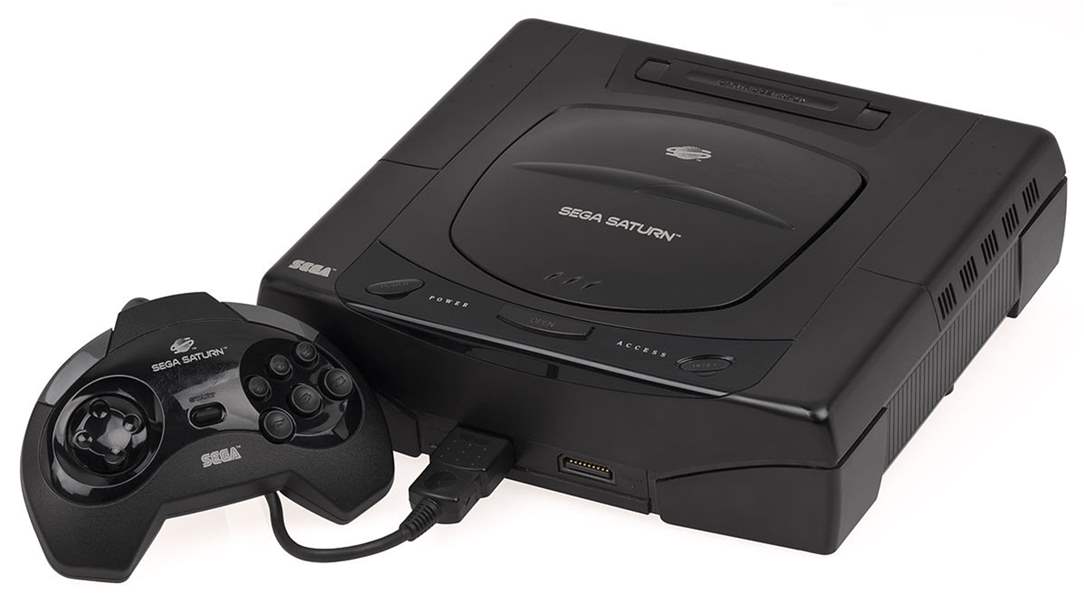
PEACH WEEKENDER | GAME ON
For every big game, there’s a bigger flop
7/6/2017

The Sega Saturn was overpriced and never gained a foothold in the market.
The games industry and professional sports drafts have much in common. For every lauded pick that pays big dividends, there are 10 players who either drop the ball or never see the field of play. Likewise, some games arrive at the stage of big conventions such as last month’s E3 conference with all the bluster of a world-conquering armada, only to never actually leave the port of shore.
Big name games fall through the cracks every year, with some crashing into the atmosphere more spectacularly than others. In its 20-plus year history, E3 has played host to many announcements that failed to excite consumers or never hit store shelves. The cause is simple economics in most cases: Studios close, go over budget, or have their games canceled outright, leaving their big moment on the E3 stage as nothing more than a reminder of what-ifs and broken promises.
Other times, an announcement is just part of a poorly executed plan to beat competitors and rush a product out the door. Japanese developer Sega arrived at E3 in 1995 wanting to blow away consumers and media alike with its new console, the Saturn. Touted as a direct successor to the popular Sega Genesis, fans were more than ready to move into the next generation of gaming with the house that Sonic the Hedgehog built.
Initially set for U.S. release in September that year, the Saturn was poised to keep Sega in the console game. After a Japanese release in 1994, Sega arrived at E3 in a panic.
Hype for Sony’s PlayStation sent the company into chaos, according to a 2015 retrospective piece on the Saturn by The Guardian. Then-head of Sega of America Tom Kalinske proceeded to march on stage for the company’s E3 conference and announce — much to the shock of consumers and journalists alike — that the Saturn was on store shelves that very day for $399.
The launch was a hot mess: Small supplies, limited retailers, high cost, and a lack of games were all continuing issues for the Saturn launch. Sony countered with a conference barb of its own that week, sending PlayStation head of development Steve Race to the presentation stage with a single, simple sentence: “$299.”
The audience lost their minds in excitement, and Sega lost the console race before it even began. The Saturn would discontinue in 1998 under weak sales and a string of games panned by critics and fans.
Not every E3 announcement is as bewildering as the Saturn, but many simply seem to be destined for failure. E3 2012 saw the announcement of a new Star Wars game in the form of a single-player, action-adventure titled Star Wars 1313. Publisher LucasArts debuted the game via an eye-catching gameplay trailer, showcasing a game that looked as if the popular Uncharted series and a galaxy far, far away combined into one universe. Fans were hyped and ready for a story-driven Star Wars experience at long last.
Then Disney bought the licensing rights to Star Wars, causing the shuttering of LucasArts. Star Wars 1313 wasn’t picked up by the new license holder.
Other times, announcements are as simple as a piece of hardware that has no purpose in the gaming sphere. Nintendo arrived at E3 2009 off the grand success of the Wii with a new idea that barely seemed related to video games. The Nintendo Vitality Sensor was a piece of technology that wouldn’t look out of place in a hospital but certainly didn’t look like a gaming peripheral. The device looked just like an oxygen sensor found in any doctor’s office, with Nintendo saying the product would read data such as temperature and pulse.
Why? No idea. Nintendo was willing to throw any crazy idea against the wall. Perhaps the connection had to do with the Wii Fit balance board accessory, but that product was far from successful.
As expected, the Vitality Sensor project was canceled in short order when Nintendo revealed in a stockholder’s meeting that the sensor would not work with all users, causing the company to back off from the idea altogether.
If there is a lesson from these failures, it is that nobody should get too attached or excited about any one conference announcement. Nothing is assured in gaming until the product is sitting on store shelves.
I am reminded of an old Japanese proverb: Is a Sega Saturn actually on store shelves if nobody knows that it is there? I am no good at riddles, so I will let you decide for yourself.
Contact William Harrison at: DoubleUHarrison@gmail.com or on Twitter @DoubleUHarrison.